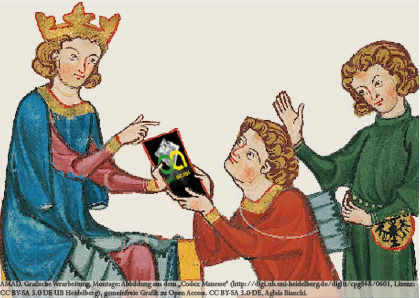AMAD
„Archivum Medii Aevi Digitale - Interdisziplinäres Open-Access-Fachrepositorium und Wissenschaftsblog für Mittelalterforschung‟Zur Einreichung

| Datum: | 1985 |
| Titel: | 'O decus Italiae virgo’ or, the myth of the learned lady in the Renaissance |
| Autor*in: | Jardine, L |
| Beschreibung: | Let me start by making it clear that, taken at face value, my title is entirely a piece of mischief: I am not about to disclose the fact that there were actually no learned women in Italy in the fifteenth century. Indeed, this paper is built around the careers and works of five distinguished women intellectuals of that period: Isotta Nogarola (1418–66); Costanza Varano (1426–77); Cassandra Fedele (c. 1465–1558); Laura Cereta (1469–99); and Alessandra Scala (1475–1506). There is, however, a serious point to my choice of words in the title. The point is that the ‘learned lady’ of the Renaissance (the cultivated noblewoman, beautiful, charming, gifted, ‘gentile’) has a mythic place in the secondary historical literature on humanism. From Isabella d'Este to Sir Thomas More's daughters and the English Tudor princesses, the cultivated gentlewoman is the Beatrice or the Laura of some male humanist's circle, his hi adoring pupil, his inspiration, his idol. Scholars adopt a fondly indulgent tone when discussing the women, which carries the implication that their intellectual calibre, their actual standing as scholars and humanists, is not a real issue, is perhaps not in fact of any real substance (a figment, rather, of their male admirers' or suitors' imaginations). The single scholarly piece of any significance on the life and work of Alessandra Scala concludes with typical sentimental indulgence:Her noble and elusive aspect – for no portrait of her survives, unless perhaps she smiles at us, unrecognised, in the guise of a saint or a goddess, from one of Botticelli's canvases, or that of some other Florentine artist – yet that aspect shines forth from the shadows of the past, and casts a beauteous and gracious light upon the discordant chorus of Florentine humanism at the end of the fifteenth century. |
| URI: | https://www.amad.org/jspui/handle/123456789/82374 |
| Quelle: | http://discovery.ucl.ac.uk/1420374/1/S0018246X00005070a.pdf http://discovery.ucl.ac.uk/1420374/ |
| AMAD ID: | 689078 |
| Enthalten in den Sammlungen: | BASE (Bielefeld Academic Search Engine) General history of Europe |

